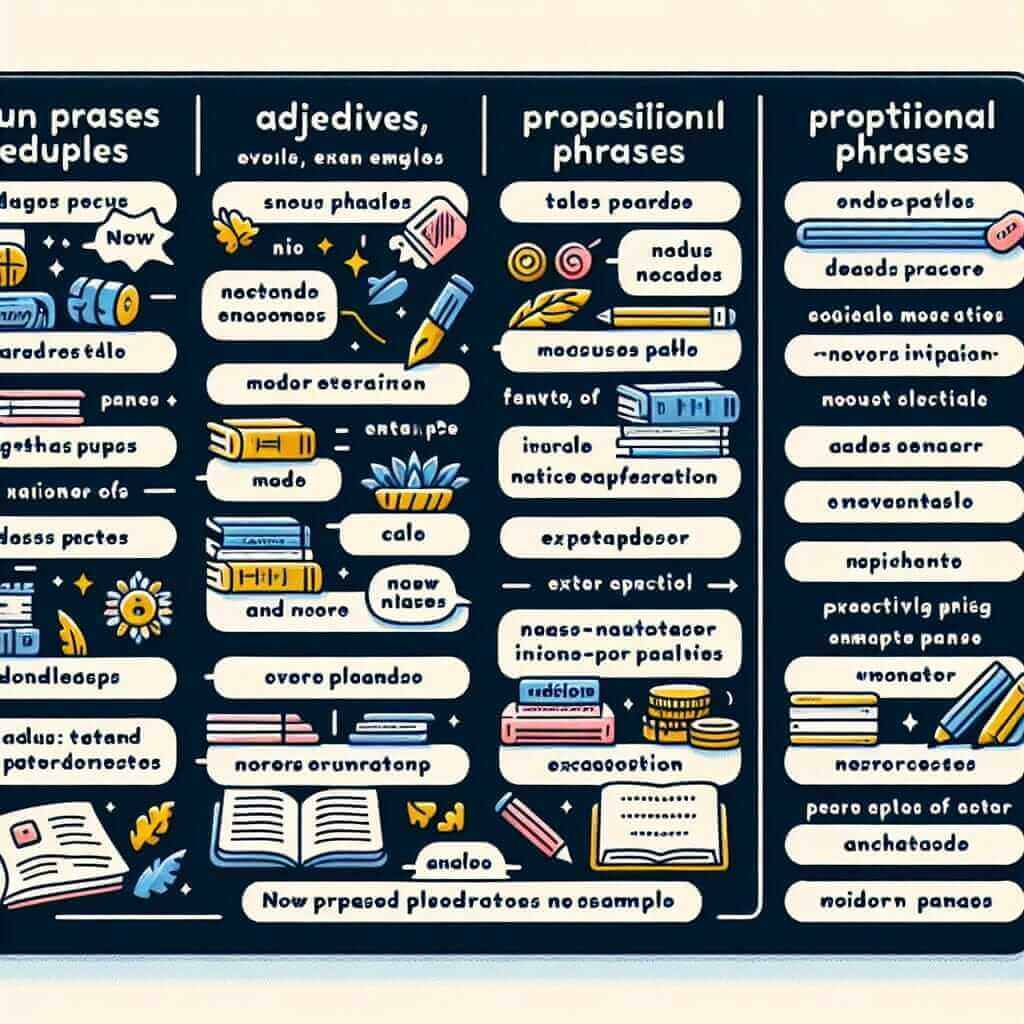Noun phrases are essential building blocks of English sentences, and mastering their use, particularly for detailed descriptions, can significantly enhance your IELTS Writing score. They allow you to combine conciseness with descriptive power, a trait highly valued by IELTS examiners.
Let’s illustrate this with a few examples across different sections of the IELTS Writing test:
Example 1 (Writing Task 1 – Describing a Trend):
Instead of writing: “The number of people who are using public transportation has increased”, you could say: “There has been a marked increase in the number of public transportation users.”
Here, “a marked increase” and “the number of public transportation users” are noun phrases that create a more academic and impactful description.
Example 2 (Writing Task 2 – Presenting an Argument):
Instead of writing: “The government should invest in renewable energy sources because they are sustainable and will not run out”, try: “Government investment in sustainable and inexhaustible renewable energy sources is crucial.”
In this case, “Government investment” and “sustainable and inexhaustible renewable energy sources” are noun phrases that offer a more sophisticated and concise way to express the same idea.
Now, let’s delve deeper into how to effectively utilize noun phrases for detailed descriptions in your IELTS Writing.
Understanding Noun Phrases and Their Significance in IELTS Writing
A noun phrase, simply put, is a group of words that function as a noun. They typically consist of a noun as the headword and other words or phrases that modify it. These modifiers can be adjectives, adverbs, other nouns, or even prepositional phrases.
Why are noun phrases important for IELTS Writing?
- Conciseness and Clarity: They help avoid repetition and express ideas more succinctly.
- Descriptive Power: They enable you to pack more information into a single phrase, creating vivid imagery and enhancing the clarity of your writing.
- Academic Tone: Using noun phrases effectively contributes to a more formal and academic writing style, which is highly regarded in the IELTS exam.
Using Noun Phrases Effectively in IELTS Writing
1. Writing Task 1: Data Interpretation and Process Description
In Task 1, you’ll often need to describe trends, compare data, or explain processes. Noun phrases can be particularly useful here:
Example:
Instead of writing: “The graph shows that the price of oil went up rapidly in 2022,” you could say: “The graph illustrates a sharp surge in oil prices throughout 2022.”
Here, “a sharp surge” and “oil prices throughout 2022” are noun phrases that create a more concise and impactful description.
2. Writing Task 2: Essay Writing
In essay writing, noun phrases are invaluable for presenting arguments, supporting your claims, and providing examples:
Example:
Instead of writing: “Many people believe that technology has made our lives easier and more convenient,” you could write: “The widespread belief is that technological advancements have led to increased ease and convenience in our daily lives.”
“The widespread belief” and “technological advancements” are noun phrases that lend a more formal and academic tone to the sentence.

Techniques for Creating Effective Noun Phrases
- Use Prepositional Phrases: “The impact of social media on teenagers“, “The benefits of regular exercise for physical and mental health“
- Employ Adjectives and Adverbs: “A significant increase in online sales”, “The rapidly changing landscape of digital marketing”
- Incorporate Participles: “The declining birth rate”, “The rising cost of living”
Common Mistakes to Avoid
- Overusing Noun Phrases: While effective, overusing noun phrases can make your writing sound dense and unnatural. Strive for a balance between noun phrases and verb phrases.
- Incorrect Word Order: Ensure the words within your noun phrase are in the correct order. A misplaced adjective or adverb can change the meaning entirely.
- Lack of Clarity: Avoid creating noun phrases that are too long or complex, as they can hinder clarity and make your writing difficult to understand.
Conclusion
Mastering the use of noun phrases for detailed descriptions is a valuable skill for any IELTS candidate aiming for a high band score. By understanding their structure, purpose, and effective application, you can elevate the quality of your writing, making it more concise, impactful, and impressive to the IELTS examiners. Remember to practice incorporating noun phrases into your writing regularly, paying close attention to clarity, conciseness, and an appropriate level of formality.